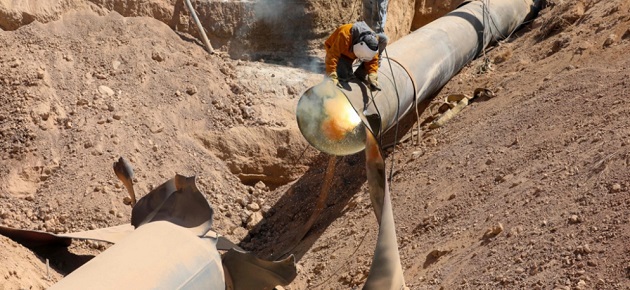The Syrian Gas Company estimated the losses resulting from the explosion of the gas pipeline at 800 million Syrian pounds, including the loss of wasted gas and the cost of repair operations.
The director of the company said in a statement to Sham FM radio yesterday that the southern stations in Syria feed 6-7 million cubic meters per day.
He pointed out that, “the welding operations and testing as well as the opening of the valves in the direction of the hollow section, which is 80 kilometers (49.7 miles) long are now complete,” indicating that, “the gas pressure has stabilized at the entrance to the Nassiriya, Dirali and Tishreen station, and they are now in a position to restore the electricity to the way it was.”
An explosion occurred on the morning of Aug. 24, 2020, affecting the gas pipeline between the Dameer area and Adra in the countryside of Damascus. The line is the main one feeding the southern region, which led to power cuts in Syria.
The line has a diameter of 36 inches, and has a daily capacity of 7 million cubic meters of gas. It feeds the stations of Jandar, Deir Ali, Tishreen, and Nasiriyah, which were out of service as a result of the explosion.
The Ministry of Electricity needs 21 million cubic meters of gas per day, in order to be able to secure 24 hours of electricity during the winter season. However, the ministry only gets 11 million cubic meters per day, according to the Public Establishment for the Transmission of Electricity.
The gas pipeline explosion came at a time when the citizens of Damascus and its countryside are suffering from energy rationing, which are in effect to protect the network from breakdowns in case the electrical load rises, especially during peak seasons in winter and summer, according to the Syrian Ministry of Electricity.
This article was translated and edited by The Syrian Observer. The Syrian Observer has not verified the content of this story. Responsibility for the information and views set out in this article lies entirely with the author.


